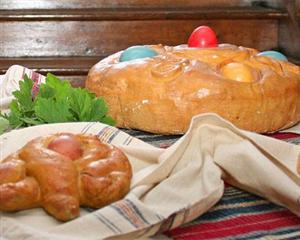
© Photo: Lyudmila Savova

© Photo: BGNES
Every holiday has its own flavour, its own 'clothes' and its own tunes. Christmas is no different. "Little is known about traditional Bulgarian carols and their purpose, little is said, and even the wrong things are said. But the most important thing is..
On Christmas morning the glad tidings have spread that the Son of God was born, making it a special day celebrated with a lot of festive rituals. After Christmas Eve, when families get together for a festive meal, comes Christmas. On 25 December the..
Christmas Eve, once called Budnik, Little Christmas or Neyadka, was considered part of a dark, frightening period, charged with the potential to influence the entire upcoming year. For this reason, the night before Christmas was associated with..

+359 2 9336 661
